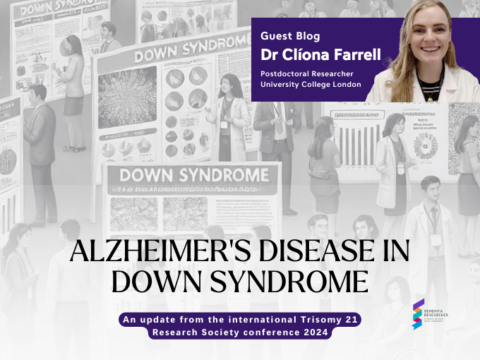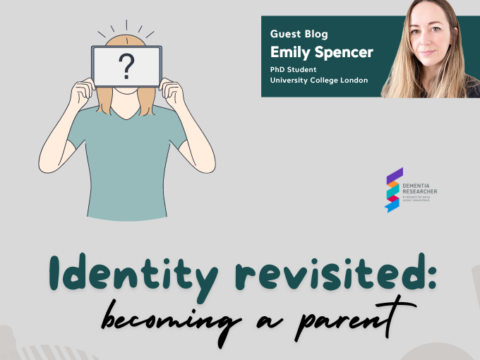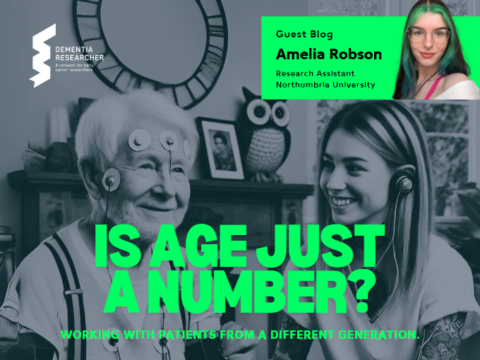Hi, my name is Beth and this is the first of my monthly blog series here on Dementia Researcher! In my posts I’ll be discussing some of the highs and lows of being a 1st year PhD student and what I’m getting up to during my studies. I hope that these blogs can give students that are thinking about doing a PhD more of an idea of what being a PhD student is like.
In this first post, I’ll be introducing myself and my research!
I studied Experimental Psychology at Bristol University where I held the very prestigious position of president of the Pokémon society. I was inspired to become a dementia researcher after taking a module on Ageing Psychology.
While at Bristol University, I was able to get some research experience by volunteering as a research assistant on various projects, and through my undergraduate research project about multimodal priming in older adults. I definitely recommend getting as much practical research experience as possible to any students out there hoping to do a PhD, as it made me feel more confident and capable proposing and planning my present work.
After I graduated, I moved to Tokyo where I lived for a year teaching English, brushing up on my Japanese and buying a lot of Pokémon merchandise. While I was in Japan, I found out about a master’s course at UCL that was specifically about dementia – which was perfect for me! I applied and got into UCL, and so I moved to London. This master’s degree definitely confirmed that I wanted to dedicate my career to dementia research. Being taught by dementia specialists from a range of fields was massively inspirational, and being surrounded by other students that were all as passionate as I was about dementia research was greatly motivating.
You can find a helpful list of dementia related master’s degrees on the Dementia Researcher website.

Bethany McLoughlin Graduation
For my master’s dissertation, I completed a research project about multimodal processing in Alzheimer’s disease and frontotemporal dementia. Working with participants with dementia and their carers was such a rewarding experience, and it was during this time that I became particularly interested in carers of people with dementia, as many of the carers I spoke to told me how they felt they hadn’t received enough support and felt very isolated.
After speaking to carers about their experiences with support groups, it became clear to me that support groups were massively valuable but quite difficult to access for many carers. Carers might not have any appropriate groups close by (especially if they are caring for someone with a rare type of dementia), might not have access to transport or have issues with mobility, or the carer might not have access to respite care whilst they attend a support group. This made me wonder whether online support groups could be an effective way of tackling these issues, and I decided to base my PhD research project around comparing the effectiveness and accessibility of online and face-to-face support groups.
This idea fit well with the PhD position I applied for at Warwick University, which centres on the use of an online support platform for carers in Warwickshire called Care Companion. Care Companion gathers advice and information for carers that is all vetted by a panel of carers and experts to ensure that there is no misinformation and people who are not confident with using the internet can trust what they find there.
Because of the pandemic, there is more reason than ever to investigate online support for carers to prevent isolation. As many people that wouldn’t usually use online services are getting online, it is also important to find ways to support this transition from physical to digital and ensure that people are able to find good support online.
Currently I am developing a research protocol for a mixed methods study investigating the experiences of dementia caregivers of using online support groups and look forward to sharing the progress of my PhD project here!
We are delighted to have Beth join us as a regular blogger, sharing news on her research and journey as she studies for her PhD. Register now to ensure you receive our weekly bulletin to ensure you see updates from Beth every month – Adam Smith
Author

Bethany McLoughlin
Bethany McLoughlin is a first year PhD student at the University of Warwick. Her research focuses on investigating the effectiveness of support groups for carers of people with dementia. Compare the effectiveness and accessibility of online and face-to-face support groups and to explore the pros and cons of each approach. Beth has adapted her research to these changing times and is also interested to learn about the influence of COVID-19 on support groups, and whether online support groups have been effective way of decreasing social isolation in carers during the pandemic. Beth will be sharing her research, study and personal journey in a monthly blog for Dementia Researcher.

 Print This Post
Print This Post




